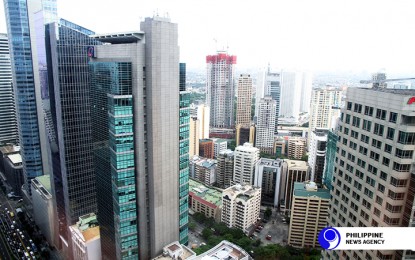
MANILA – The decline in the number of domestic coronavirus disease 2019 (Covid-19) cases and the continued easing of movement restrictions are seen as the strong boost for the improvement of the government’s fiscal position this year.
The government on Tuesday reported a PHP200.3 billion budget deficit for May 2021, higher than the PHP44.4 billion gap in the previous month but lower than the PHP202.1 billion deficit in May 2020.
Rizal Commercial Banking Corp. (RCBC) chief economist Michael Ricafort, in a report, attributed the wider budget gap partly to increased government spending for the pandemic and lower revenues because of reduced economic activities.
Data released by the Bureau of the Treasury (BTr) showed that total revenues in the fifth month this year reached PHP256.4 billion, 69.25 percent higher than the PHP151.5 billion in the same period last year.
Expenditures, on the other hand, posted a lower growth of 29.15 percent but the amount is higher than tax collections at PHP456.7 billion compared to the PHP353.6 billion in May last year.
In the first five months this year, total revenues amounted to PHP1.244 trillion, up by 12.92 percent from last year’s PHP1.102 trillion.
Government spending rose by 8.8 percent to PHP1.811 trillion from the PHP1.664 trillion in end-May 2020.
This resulted in a budget deficit of PHP566.2 billion, 0.72 percent higher than the previous year’s PHP562.2 billion.
Ricafort said the further re-opening of the domestic economy would result in more economic activities that would also benefit the government’s tax collections.
“This would be justified if new Covid-19 local cases meaningfully ease with the expected arrival of more Covid-19 vaccine arrivals in 3Q 2021 and/or 4Q 2021, as well as the observance of strict health protocols to prevent Covid-19 from spreading further,” he said.
Other factors to the lower government revenues are the reform measures, such as the Corporate Recovery and Tax Incentives for Enterprises (CREATE) Act, Ricafort said, noting, however, that this is only temporary.
Amid the negative impact of CREATE on revenue collections, he said this law is the government’s largest stimulus measure so far.
The law, he added, is seen to reduce tax revenues by about PHP100 billion annually for several years, but this would be countered “by the resulting higher tax base in the economy with increased business/economic activities due to the lower corporate income tax rate and greater certainty on investment incentives that help attract more foreign and local direct investments.”
Ricafort said the temporary reduction on tariff for imported pork and rice are also seen to hurt government revenues “but would be offset by the positive economic effects in terms of reduced inflation/prices.”
With these factors, he said, “there is a delicate balance between stimulating economic growth and sustaining fiscal management performance.”
“Hopefully, new Covid-19 cases would ease further with the continued increase in Covid-19 vaccine arrivals and rollouts, thereby would help justify (the) re-opening of the economy, while also considering the capacity of the health care system,” he added. (PNA)
